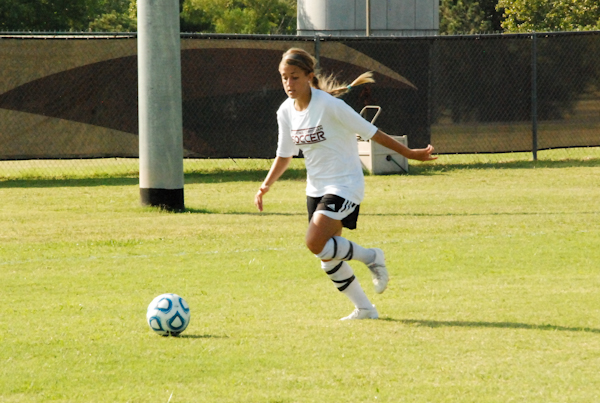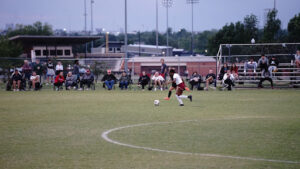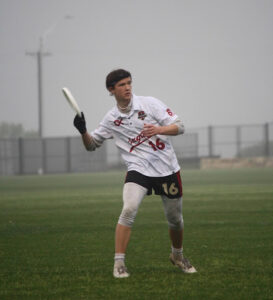The repercussions of the February winter storm are still being felt at Oklahoma Christian University. The storm and resulting snow forced students to temporarily turn to online classes while the campus was closed.
Sports, however, could not simply meet online to practice or play. As a result, many events were cancelled or delayed. Many of those games are only now taking place a month later, alongside their regularly scheduled matches. For the Oklahoma Christian women’s soccer team, this means playing a very game-dense two weeks, from March 3 to March 17.
“Five games in 10 days is big for any sport, but for soccer, it’s really big,” Head Coach Meagan Anderson said. “With such a quick turnaround with some of these games, especially this stretch, it’s not ideal.”
COVID-19 has also made its contribution to their difficulties, shortening the season.
“We’re not playing 18 games like we would in a regular season. We’re only playing 13,” Anderson said. “So, you can’t get into a mindset of not taking one more seriously than another.”
The team has come up with a strategy to maintain the intensity they must bring to each game.
“Coach (Anderson) has been substituting a lot more frequently, which I think is a good strategy,” the team’s goalie, Gabby Goddard, said. “Our starters need to be on their best game.”
Despite the tactics, it has not been easy.
“Even me as a keeper, I’m not doing as much, but I’m still feeling the aftermath,” Goddard said. “Last night (March 8) we might have shown a little bit of fatigue and kind of a disconnect. I think it might be catching up to us.”
The less than typical time between games has added to the adversity they face.
“Normally our schedule is set to where we have at least two days between games and that helps recovery time,” Anderson said.
Without that luxury, they must emphasize recovery with what time they do have, limiting their choices for practice activities.
“We try to keep the impact of running and kicking to a minimum,” Anderson said. “Then, on the learning side, we’ll watch some film. We’ll look at areas that we can improve on.”
Scoring is one aspect of their performance which needs work.
“The possession and offensive opportunities, I think that’s really where we’re lacking,” Goddard said. “Defensively, we’ve really improved, but it’s about scoring goals. Even if it’s zero to zero, you didn’t win. You have to score at some point.”
Their potential is clear despite the lacking performance.
“Last year we were constantly trailing behind and it was really hard mentally,” Goddard said. “But I can see a desire this year that last year there wasn’t much of. I’m excited to see that and see where it’s going to take us.”
Altogether, the team has six games left this season before the conference tournament on April 3.
One reason they have struggled to translate this potential to the field has been their inability to “click,” as Goddard put it.
“There is a bit of a missing piece when it comes to team bonding, especially with COVID-19,” Goddard said. “We really try as much as we can outside of practice to get together, but it’s been hard to connect that way.”
In hindsight, the pandemic might be the real culprit.
The pandemic delayed soccer, normally a fall sport, into the spring. Their season would not have overlapped with the snowstorm had that not happened. Even the safety protocols for COVID-19, although certainly necessary and respected, have impacted the team.
“You have to do the mask wearing, all of those social distancing type things. That’s just distancing people in general,” Anderson said. “For a team, that’s a hard battle regardless of the stretch of season or games that you’re in.”
It seems to be a season of hard times.
“(We’re) just trying to keep a positive mindset in facing adversity,” Goddard said.












Be First to Comment